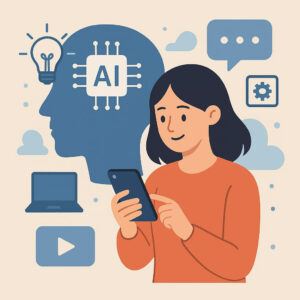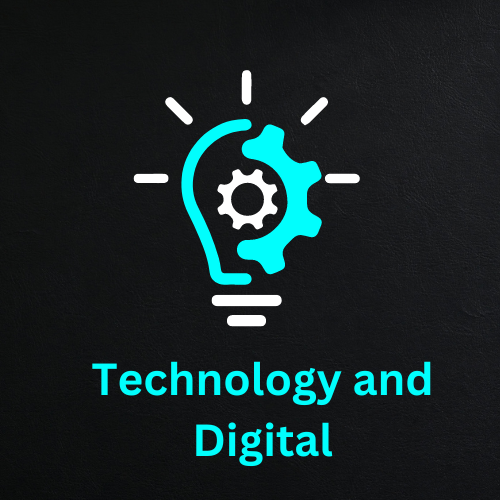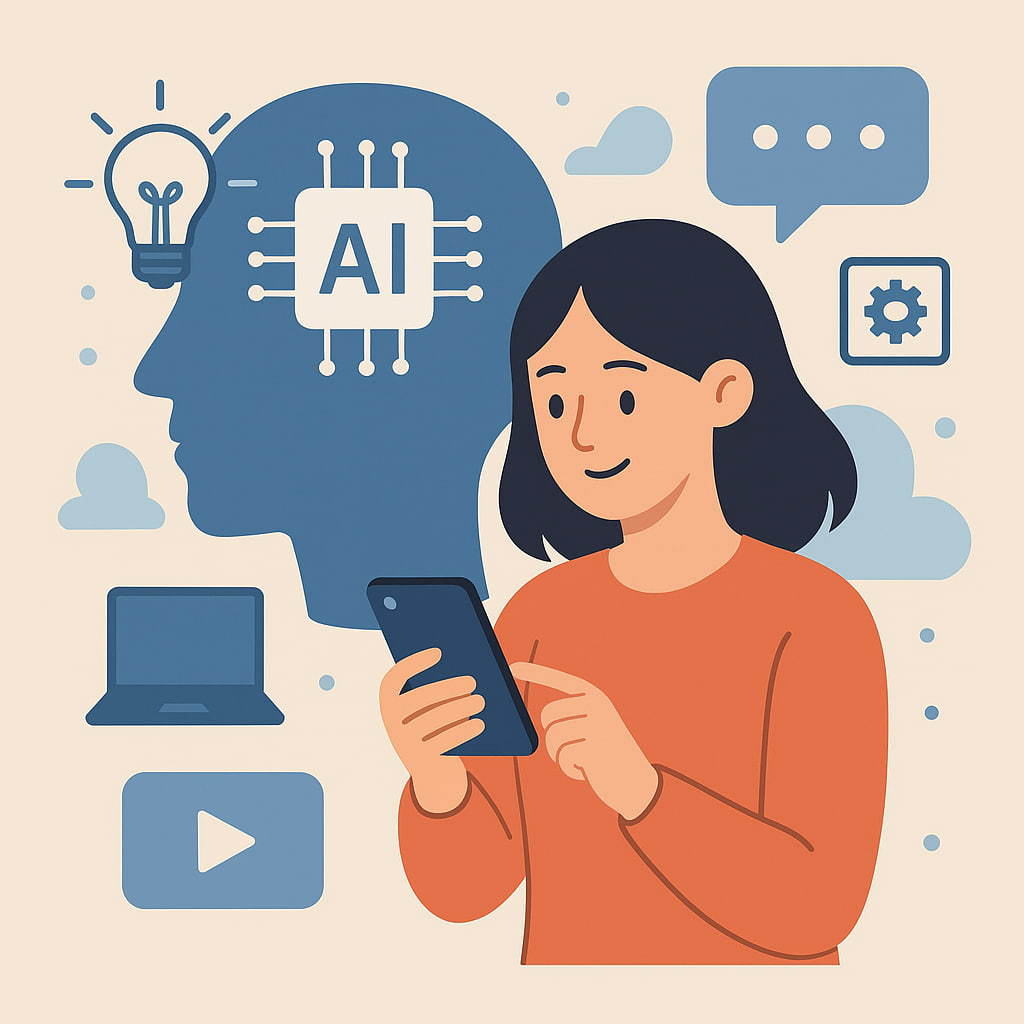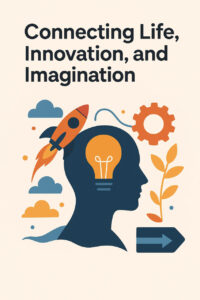How Artificial Intelligence Is Transforming Everyday Life in 2025

In 2025, artificial intelligence is no longer a distant dream or sci-fi fantasy—it’s here, it’s real, and it’s everywhere. From waking up in smart homes that adjust the lights before your eyes open, to getting health alerts before you even feel sick, AI is woven into the fabric of daily living. And the best part? Most of the time, it’s working silently in the background, making life smoother, safer, and more efficient.
Introduction: The Invisible Revolution
AI isn’t a futuristic robot taking over the world—it’s the invisible helper that quietly revolutionizes how we live, work, and connect. This revolution doesn’t come with explosions or chaos. Instead, it shows up as subtle convenience, faster solutions, and deeper personalization that feels almost magical.
What is Artificial Intelligence in 2025?
Defining AI Beyond the Buzzwords
AI in 2025 means more than just algorithms. It refers to systems that can learn, adapt, and respond in ways that feel human—often anticipating needs before they’re spoken. It’s not just automation; it’s augmentation.
AI vs. Machine Learning vs. Deep Learning
While often used interchangeably, these terms are distinct. AI is the umbrella. Machine learning is a subset that learns from data, and deep learning is a more advanced form that mimics the brain’s neural networks. Together, they power everything from chatbots to cancer detection tools.
AI in Healthcare: From Diagnosis to Daily Care
Predictive Diagnostics
AI tools now analyze symptoms and genetic data to predict illnesses before symptoms appear. In 2025, early-stage cancer, heart disease, and even neurological disorders are flagged with stunning accuracy—sometimes years in advance.
Virtual Health Assistants
AI-powered assistants guide patients through treatments, medication schedules, and follow-ups. No more forgotten prescriptions or missed appointments—your AI health partner has it covered.
AI in Mental Health Support
Apps using emotional AI detect tone, facial expressions, and text patterns to provide immediate support for anxiety, depression, and more. For many, it’s a comforting lifeline available 24/7.
AI in Education: Personalized and Empowered Learning
Customized Learning Paths
AI adapts lessons to how a student learns best—visual, auditory, or hands-on. Whether it’s a struggling student or a gifted learner, education becomes tailored and supportive, not one-size-fits-all.
24/7 Tutoring with AI Bots
Intelligent tutoring systems answer homework questions, explain concepts, and offer practice problems whenever they’re needed. It’s like having a teacher on call, any time of day.
AI in Transportation: Smarter Roads and Safer Journeys
Autonomous Vehicles in 2025
Self-driving cars are more common now, not just in testing labs. AI handles real-time decisions on roads, predicting pedestrian movements and reacting faster than any human could.
Traffic Management Using AI
Cities are using AI to monitor congestion, adjust signal timings, and prevent bottlenecks before they happen. Less honking. Less stress. More peace.
AI in Smart Homes: Convenience at Your Command
Voice Assistants and Contextual Understanding
Today’s smart assistants don’t just listen—they understand. Ask for “something cozy to watch,” and they’ll pull up a tailored movie list based on mood, weather, and past choices.
Energy Efficiency Through Smart AI
AI learns routines, adjusts lights, AC, and appliances to save energy without anyone noticing. It’s eco-friendly living that feels effortless.
AI and Daily Decision-Making
AI-Powered Personal Assistants
From scheduling meetings to ordering groceries, AI assistants take the mental load off busy minds. They remember birthdays, suggest gifts, and even reorder your dog’s favorite treats.
Recommendation Engines Everywhere
Music, shopping, food delivery—AI is behind the suggestions that somehow always get it right. It’s not magic; it’s pattern recognition at its finest.
AI in Workplaces: Collaboration, Not Replacement
Automation of Repetitive Tasks
Emails, data entry, and inventory tracking? Handled. AI frees up time for workers to focus on what matters—creativity, strategy, and human connection.
AI for Creativity and Innovation
AI tools help design logos, write drafts, and even compose music. It doesn’t replace creativity—it amplifies it, making the impossible feel within reach.
Ethical Concerns and AI: Finding the Human in the Code
Bias in Algorithms
AI reflects the data it’s fed, and biased data leads to biased results. The fight to build fair, inclusive AI systems is ongoing—and urgent.
Privacy vs. Personalization
With great personalization comes great responsibility. The debate rages between convenience and control over data. Transparency is becoming non-negotiable.
The Emotional Side: How AI Affects Human Connections
AI connects people across borders, languages, and time zones. But it also raises the question—how much screen time is too much? As virtual relationships grow, so does the need for real-world touchpoints.
Preparing for an AI-Driven Future
Upskilling for the AI Age
In 2025, digital literacy is survival. Learning how to work with AI—not against it—is key. Online courses, AI tools, and micro-learning are exploding in popularity.
Staying Human in a Digital World
Empathy, ethics, and creativity—these are irreplaceable. As machines get smarter, the human touch becomes even more valuable.
Conclusion: Living With AI, Not Under It
Artificial intelligence in 2025 isn’t about robots taking over. It’s about living smarter, not harder. From healthcare to home life, AI is enhancing—not replacing—the human experience. The challenge isn’t whether AI will change life—it already has. The real question is, how will society shape it to serve all with fairness, purpose, and heart?
FAQs
1. What industries are most affected by AI in 2025?
Healthcare, education, transportation, retail, and finance are seeing the most significant AI-driven transformations.
2. Is AI safe to trust with healthcare decisions?
When regulated and trained on high-quality data, AI in healthcare can support early diagnosis and precision treatment, often outperforming traditional systems.
3. Are AI jobs replacing humans?
AI is automating repetitive tasks, but it’s also creating demand for new roles focused on creativity, strategy, and emotional intelligence.
4. How can someone start learning AI skills?
Free platforms like Coursera, edX, and Google AI offer beginner-friendly courses. Start with Python, data literacy, and basic machine learning.
5. What are the risks of AI in daily life?
Bias, data privacy, over-dependence, and misinformation are real concerns. Responsible AI development and usage are critical to reducing these risks.




